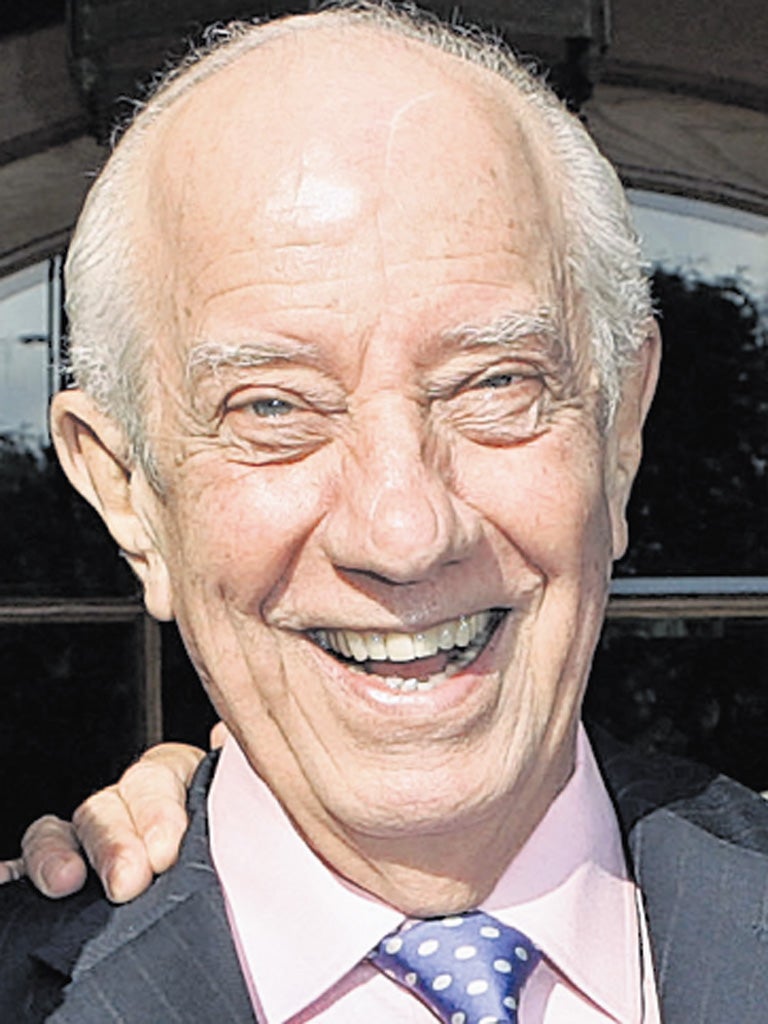Ian Abercrombie: Character actor best known in 'Seinfeld'

Your support helps us to tell the story
From reproductive rights to climate change to Big Tech, The Independent is on the ground when the story is developing. Whether it's investigating the financials of Elon Musk's pro-Trump PAC or producing our latest documentary, 'The A Word', which shines a light on the American women fighting for reproductive rights, we know how important it is to parse out the facts from the messaging.
At such a critical moment in US history, we need reporters on the ground. Your donation allows us to keep sending journalists to speak to both sides of the story.
The Independent is trusted by Americans across the entire political spectrum. And unlike many other quality news outlets, we choose not to lock Americans out of our reporting and analysis with paywalls. We believe quality journalism should be available to everyone, paid for by those who can afford it.
Your support makes all the difference.From Essex to Hollywood – such was the trajectory of Ian Abercrombie. In spite of an acting career that included CGI animation, video games and online gaming services, he often seemed like a throwback. Had he been born some decades earlier he would have fitted comfortably into the Hollywood Raj of exiled British actors.
Never commanding leading parts, he was repeatedly cast in what Americans seem to think their audiences see as typically British – butlers (constantly), snobbish head waiters and characters called Nigel. Stocky in build and bald, speaking in what Americans term a "clipped" accent, he owned an impressively jowled face that seemed composed of subtle signs of disapproval. A visual trademark was the widening of his blue eyes, in alarm or bewilderment. The critically lauded sitcom Seinfeld (1990-98) gave him his most recognised role.
One of four brothers, he was born in Grays, Essex, leaving for America aged 17, and making his stage debut in a 1951 production of Stalag 17 at New York's 48th Street Theatre in which Jason Robards was an understudy.
In 2010 he insisted that he had never been an extra, "in over 46 years of being in film and TV", but some non-speaking assignments, like Wild Wild West (1999), came close. He had Cockney-accented bit parts in Von Ryan's Express (1965), startled by recognising his padre in German uniform, and Star! (1968), heckling Bruce Forsyth.
Abercrombie was required casting for series episodes set in Britain, featuring stock footage of London landmarks, suspiciously sunny countrysides and extras in flat caps, such as Columbo (1972), the pilot for Fantasy Island (1977), and Murder, She Wrote (1987). He complained that his part was cut from Mel Brooks' Young Frankenstein (1974), though he can be spotted.
At the California Centre for Performing Arts in 1981, he supported Anthony Hopkins in The Arcata Promise, a play by David Mercer that Hopkins had previously done on ITV. He played a Hindu, and Inspector Lestrade, in The Crucifer Of Blood (1980-81) at the Ahmanson Theatre in Los Angeles, with Charlton Heston as Sherlock Holmes and a future Holmes, Jeremy Brett, as Watson. At the city's Doolittle Theatre in 1991, he did Noel Coward's The Vortex, with Rupert Everett.
Sweet Prince, at New York's Theatre Off Park (1982), was a two-hander between a film star tackling Hamlet and his understudy. The much-feared critic Frank Rich, in the New York Times, considered that Abercrombie "contributes sensitive work; if one couldn't quite picture him understudying any Hamlet, one could at least imagine him standing by for Tom Courtenay in The Dresser."
Abercrombie was also active in the field of Additional Dialogue Replacement (ADR), dubbing lines for other actors that had been unsatisfactorily recorded, and sometimes generic crowd noises. Examples included John Huston's The Dead (1987) and Gladiator (2000); of the task of synchronising, he recalled: "The toughest one was Titanic, as the people fell overboard screaming before hitting the icy waters."
Sam Raimi cast him in Army Of Darkness (1992), as a sage in a long beard, spouting a spell borrowed from The Day The Earth Stood Still. Having been in David Lynch's TV series Twin Peaks (1990), he worked again for Lynch, on the big screen and as a butler, in Inland Empire (2006). His butling continued in The Lost World: Jurassic Park (1997), where he was charmed by Steven Spielberg's enthusiasm for Fellini, and Desperate Housewives (2006)
He made seven episodes of Seinfeld as Mr Pitt, the neurotic, exacting, braces-wearing employer of Elaine (Julia Louis-Dreyfus), engaging in verbal duels. The series was never as successful in Britain as in the US due to being scheduled late at night on BBC2, resulting in Abercrombie remaining largely unknown in his own country.
Birds of Prey (2002-03), a Batman spin-off which cast him unimaginatively as Alfred the butler, and Wizards of Waverly Place (2007-12), as Professor Crumbs, were live-action TV series. His voice work on animated features included Shrek (2001), Star Wars: The Clone Wars (2008) as the evil future Emperor, and Rango (2011). He was a long-time board member of the Los Angeles division of Bafta. In 2007, he reflected, "I thankfully fall into the category of working actor, a rare event these days."
Ian Abercrombie, actor: born Grays, Essex 11 September 1934; married Gladys; died Hollywood 26 January 2012.
Join our commenting forum
Join thought-provoking conversations, follow other Independent readers and see their replies
Comments